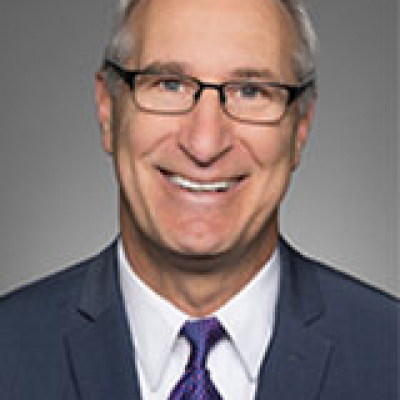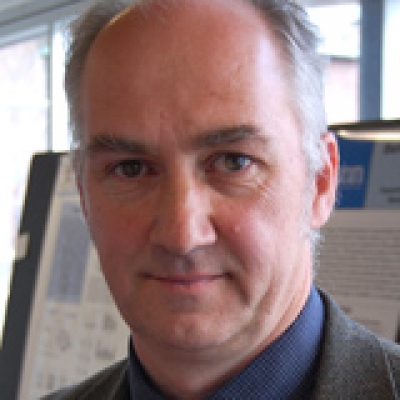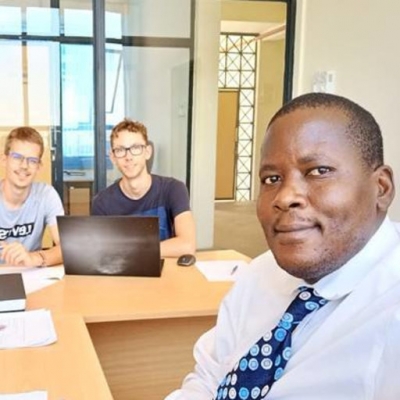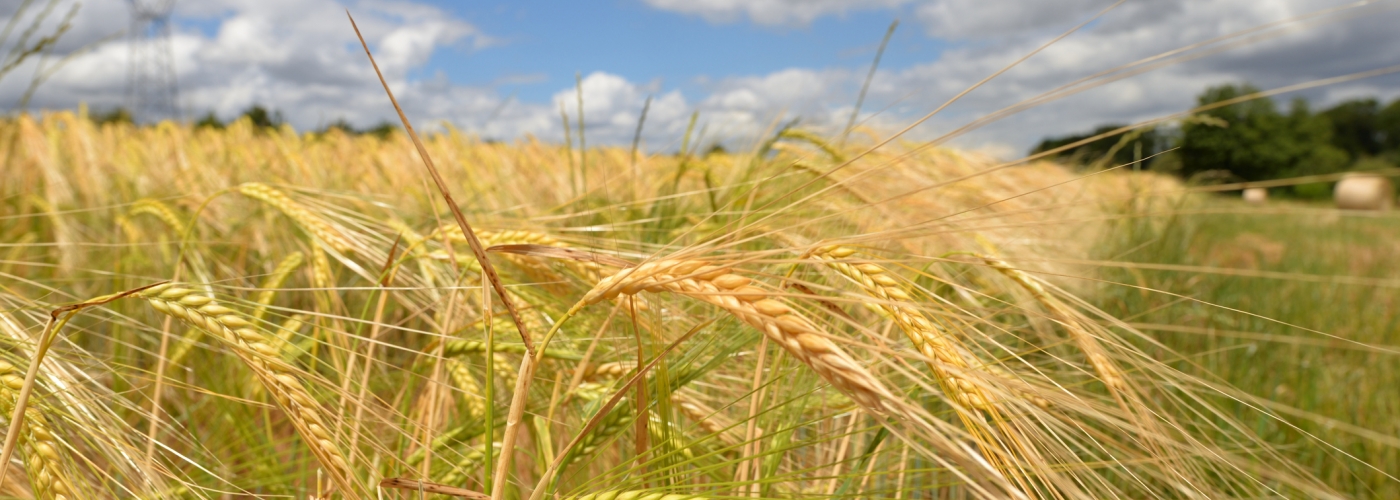Agriculture remains one of the most climate sensitive anthropocentric activities on the planet today. Conventional farming practices undoubtedly contribute to climate change but also are likely to be most impacted by it. Thus, there is a growing call for adaptive, sustainable solutions that prioritize environmental stewardship without compromising food security. The 2023 United Nations Framework Convention on Climate Change (UNFCCC) global climate meeting (COP28) marked a pivotal moment as more than 150 countries recognized a critical role for sustainable agriculture in addressing climate change. Regenerative agriculture emerges as an important tool, embracing practices that bolster biodiversity, reduce synthetic inputs, and minimize soil erosion. It aims to help curb greenhouse gas emissions, make resilient food systems, and emphasize the centrality of farming communities. Central to this paradigm shift is a focus on improving soil health, including the potential to sequester atmospheric carbon and help mitigate ongoing warming trends.
University demonstration farms emerge as pivotal catalysts in unlocking the potential of regenerative agriculture. Join us for discussion between the University of Pennsylvania and Great Lakes University Kisumu (Kenya), delving into how these participatory agriculture research centers foster collaboration among farmers, animal and climate scientists, veterinarians, and policymakers and serve as living laboratories for scaling up climate-smart practices through applied participatory research and knowledge exchange.
Register to join for this first Energy Week at Penn discussion, featuring speakers from PennVet and Great Lakes University Kisumu in Kenya.

Andrew M Hoffman
Gilbert S. Kahn Dean of Veterinary Medicine
University of Pennsylvania School of Veterinary Medicine
Dr. Hoffman has extensive experience, publications (~100), and patents (4) concerning novel methods of evaluation or therapies in spontaneous and experimental disease models in large animals. He also has ~15 yrs experience specifically in the development of preclinical large animal models in accordance with Good Laboratory Practices (GLP), including as PI/PD in a current study funded by NIH (RO1-HL112987-01A1) “Autologous Lung Derived Mesenchymal Stromal Cell Therapy for Emphysema”. Importantly this active study includes GLP-like pre-clinical studies in a large animal (sheep) model of emphysema followed by the first-in-human Phase 1 investigation of autologous LMSCs therapy for advanced emphysema in years 4-5, the latter under the direction of Edward P. Ingenito MD, PhD (PD/PI, Brigham and Womens Hospital).
Previously Drs. Hoffman and Ingenito developed major advances in human emphysema therapy, specifically non-surgical methods for lung volume reduction which are currently in Phase III again successfully linking pre-clinical large animal models with human studies. In addition, Dr. Hoffman’s laboratory serves as a Regenerative Medicine / Stem Cell core and project leader on several studies involving canine, feline, and avian species funded by a variety of Foundations and industry partners.
These multifaceted experiences have given the PD/PI the experience to lead multi-disciplinary projects involving stem cell implantations, bioengineering technologies, large animal experimental or spontaneous models, cell-molecular biology, biomarker analyses, clinical trial design, and FDA (GLP, GCP, GMP) compliance.
Hazel Miseda Mumbo
Vice Chancellor
Great Lakes University Kisumu
Hazel Miseda Mumbo is a multi disciplinary visionary leader with strategic competencies to manage complex assignments with 26 years experience in various sectors and positions. Currently, she is the Vice Chancellor of Great Lakes University of Kisumu and recently, she was appointed twice this year (2021) by the president of Kenya in the commissioner that recruited the Teacher Service Commission Commissioners.
Mumbo is also the Executive Director Mizel consultants Company Limited. Her role is to give overall strategic direction to the organization. She was also the Human Resource for Health(HRH) Expert at Organizational Capacity Development Project( OCADEP) for the Management of Devolved Health systems in Kenya (JICA).

Thomas D. Parsons
Marie A. Moore Professor of Animal Welfare and Ethics
University of Pennsylvania School of Veterinary Medicine- New Bolton Center
Thomas Parsons is the Marie A. Moore Professor of Animal Welfare and Ethics and the New Bolton Center at the University of Pennsylvania School of Veterinary Medicine. He is also a Professor of Swine Production Medicine at the University of Pennsylvania School of Veterinary Medicine. His laboratory research focuses on pre-synaptic mechanisms of neurotransmitter release.

Rewe Thomas
Deputy-Vice Chancellor
Great Lakes University Kisumu
Rewe Thomas is currently the Deputy Vice Chancellor, Academic Affairs and Research at the Great Lakes University of Kisumu. He is also an Associate Professor at Pwani University and Member of The National Scientific and Ethics Committee of NACOSTI, Kenya. His interests are in Agricultural teaching and research, Especially in Integrated Agricultural Systems, Sustainable Agriculture, Renewable energy solutions/Biogas.
Thabo Lenneiye (moderator)
Managing Director of the Sustainable Agriculture Fund
Kleinman Center for Energy Policy
Thabo Lenneiye is the Managing Director of the Sustainable Agriculture Fund at the Kleinman Center for Energy Policy in the Weitzman School of Design. In this capacity, she is responsible for operationalizing the fund, launching initiatives focused on sustainable agriculture strategies and practices, and framing a research agenda that intersects with energy and climate policy.
Prior to this role, Lenneiye was the Managing Director of PennPraxis, where she oversaw operations, fundraising, business development, communications, and strategic planning for the organization. She spent 12 years before this at Gensler, where she held various design, project management, and leadership roles. Notably, she worked alongside the firm’s leadership team to shape initiatives promoting justice, inclusion, and social impact, including the conceptualization and strategic planning of a Diversity, Equity and Inclusion (DEI) studio in 2020.
Lenneiye’s commitment to societal impact extends beyond her professional roles. She served as the inaugural secretary of the Board for the African Union Pan-African Diaspora Women’s Association from 2017 to 2018. She also played a crucial role in establishing Gensler’s Africa practice, working directly for CEO Diane Hoskins, and serving as support staff for the Obama Administration’s Presidential Advisory Committee for Doing Business in Africa.
An entrepreneur at heart, Lenneiye has founded a number of social ventures. Her multi-disciplinary background includes co-teaching design studios at the University of Pennsylvania and the University of Maryland. She is an Associate Scholar at the University of Pennsylvania Center for Global Health, and holds an MBA from the University of Cambridge, where she was the recipient of the Africa Regional Scholarship.

